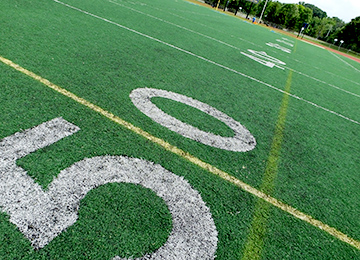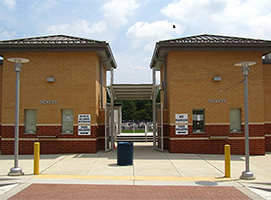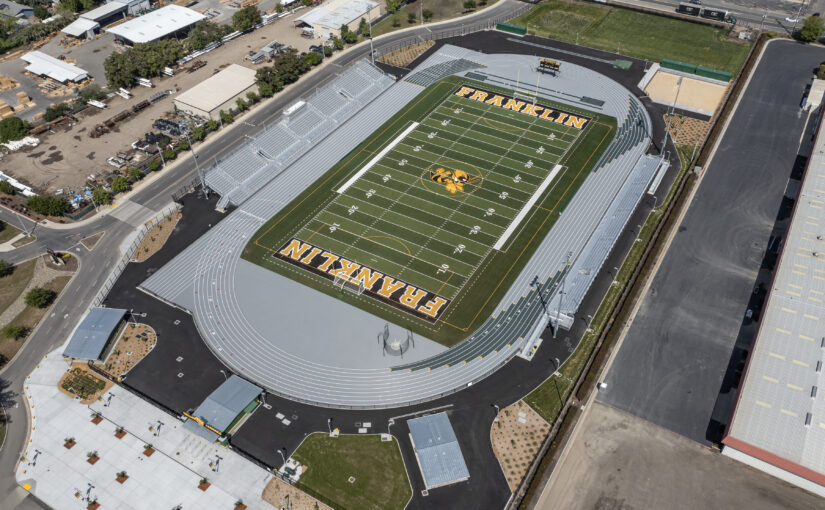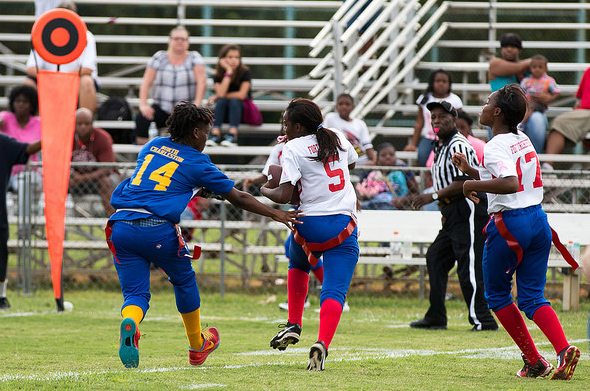Learn from recently retired Bob Ladouceur of De La Salle
Editor’s Note: This is a portion of an article published in Oct. 2009 about the De La Salle High (Concord, Calif.) athletic program. Bob Ladouceur, the football coach since 1979 and who was prominently quoted in this piece, retired last week after 34 years on the De La Salle sideline with a career record of 399-25-3.
You probably know about De La Salle’s 151-game football winning streak and six national championships. But did you know the swim team has won 21 consecutive league titles?
 You also may know the basketball team is a two-time state champion and is currently riding a streak of 12 straight league titles. But did you know the cross-country team has won 15 North Coast Section championships? Or, that the golf team has won 10 consecutive golf titles? Or, that a combined 28 North Coast Section titles have come from sports like soccer (eight), volleyball (six), baseball (six), water polo (three), wrestling (three) or lacrosse (two)?
You also may know the basketball team is a two-time state champion and is currently riding a streak of 12 straight league titles. But did you know the cross-country team has won 15 North Coast Section championships? Or, that the golf team has won 10 consecutive golf titles? Or, that a combined 28 North Coast Section titles have come from sports like soccer (eight), volleyball (six), baseball (six), water polo (three), wrestling (three) or lacrosse (two)?
It could be argued that one of the most famous high school athletic programs in the country should be even more famous, considering how successful every team is at De La Salle. With the national, state, section and league titles pouring into the school, you might think De La Salle has an entire wing of its facility dedicated to all of its various trophies, awards and accolades. Nothing could be further from the truth.
Upon exiting the school’s gymnasium, there’s a small area where some scattered trophies rest. These are some of the national and state trophies, yet they are stored in a standard trophy case with sliding glass doors. Theres no spotlight, no fancy presentation and it’s difficult to tell why the trophy was won until you get right up close to the engraved plate on the front of it.
Coach Bob Ladouceur
Well, if De La Salle isn’t spending its money on an elaborate trophy room, then clearly the school is pumping cash into the athletic facilities. To be home to so many of California’s best athletic teams, you might assume De La Salle is playing on the finest fields and courts in the country — again, you’d be wrong.
The baseball diamond (yes, the keyword is the, as in, just one) is shared among the four hardball teams (two freshmen, junior varsity and varsity). It features a portable outfield fence (so the space can be used for other purposes) and there’s a single batting cage for the entire program. The football field is a multi-use stadium shared with the soccer and lacrosse teams, which finally is sporting a new turf field (installed two years ago) after seasons of wear and tear. The gymnasium looks like any other schools gymnasium with standard bleachers, modest scoreboard and walls behind the baskets (instead of extra seating). Wrestling practices are conducted in the old cafeteria. The weight room is small and cramped but serves its purpose.
“The baseball field is about 40 years old with some drainage issues. We re-sod it when we can,” explains De La Salle athletic director Leo Lopoz. “But, that’s our character. We’re humble and not into showing off. Plus, it forces our coaches and teams to work together for the overall success of every team. It’s a blue-collar mentality here. But, we also take great pride in the facilities that we have. We keep them clean and useful.”
And, while it’s hard to find overt signs of the magnitude of our athletic accomplishments on campus, we are proud of them.
Foundations for success
Saint Jean-Baptiste de la Salle was born in 1651 in France. He dedicated his life work to helping and educating the poor, eventually establishing the Institute of the Brothers of the Christian Schools, known in the United States as Christian Brothers. The staff at De La Salle High School believes the athletic successes come from the core values and beliefs upon which the school was established.
“We follow the traditions of our founder to this day. We are here to give our students the tools necessary to make them successful. That’s the foundation we build upon,” says De La Salle president Mark DeMarco, a 1978 graduate of the school. “The first active verb in our mission statement is loved. The students at this school are loved first, then instructed and guided. And, you can look at all of our programs, including athletics, and the kids are loved.
 “We don’t play up the athletics here. The athletics are secondary in nature to this institution. Brother Chris, our principal, tells students at freshman orientation and at the parents open house, that if you are sending your child here for athletic reasons only, you need to pick another school. We are academic first, then we are athletic.”
“We don’t play up the athletics here. The athletics are secondary in nature to this institution. Brother Chris, our principal, tells students at freshman orientation and at the parents open house, that if you are sending your child here for athletic reasons only, you need to pick another school. We are academic first, then we are athletic.”
We support the overall spirit of athletics because it’s part of the overall education of a student — but the coaches know that they are teachers first,” Lopoz adds. “They are here to serve the mind, body and soul and that drives our success. Yes, our coaches are very good at what they do, but they also respect the individuals they instruct and are here to serve the De La Salle brotherhood and tradition.”
“The goals and mission of this school provide the basis and foundation for our success,” says football coach Bob Ladouceur. “It grounds us. All coaches here are an extension of the educational process. Yeah, it sounds idealistic, but it’s true.”
As Ladouceur mentioned, all of this sounds a bit idealistic — and maybe it is. But, the philosophy is working at De La Salle. The sense of togetherness and the genuine care and concern for all the students helps them become better people. Just ask Aaron Taylor, the former NFL offensive lineman for the Green Bay Packers and San Diego Chargers.
“Prior to coming to De La Salle, I was a ‘D’ and ‘F’ student who was drinking and doing drugs. I was going nowhere quickly,” Taylor recalls. “My mother sat me down and asked me what I wanted to do with my life. I told her I wanted to play professional football. She said I needed to go to a school with structure, morals and values before anything else, so that’s how I ended up at De La Salle. Once there, it didn’t take long to feel the sense of family woven into the schools fabric.
It’s a common cliché to talk about the sense of family at De La Salle or at Notre Dame (where Taylor graduated from college) but it’s a very accurate way to describe it. I can’t say enough about that program. I give it singular credit for putting me on the right path in my life.”
While Taylor went on to a career in professional football, he still carries those ideals and values instilled at De La Salle. In 2005, he traveled to Sri Lanka to help in the recovery efforts after a deadly tsunami devastated the area. He spent 10 weeks on the island delivering needed goods and products to tsunami victims. He also helped build a temporary school during his time there.
Cliché or not, the sense of family and traditions of De La Salle obviously have remained with Taylor well after his years competing on a football field.
Gridiron greatness
Ladouceur has patrolled the football field at De La Salle since 1979. As a former college player at Utah, then San Jose State, Ladouceur arrived at De La Salle as a 25-year-old taking over a fledgling program, which never had posted a winning season. He immediately put his players on a running regimen to build their endurance and an extensive strength program to build muscle.
“I always said that as long as I have a weight room, I can be a successful coach. I wanted to put us in a position to be able to compete.”
It worked. Ladouceur’s hiring paid immediate dividends to the football team and the coach never has posted a losing record in his 30 seasons. His current overall record is a remarkable 344-22-3, including that dominating stretch from 1992-2003 when the team won 151 games in a row. His program has survived constant league shifts, rules changes to balance the power (at one point De La Salle was granted an automatic pass to the playoffs and pulled out of all league affiliations to give the other schools a better chance to compete) and a schedule featuring some of the best teams from the state and the nation. He has done all of this at a school with about 1,000 students while competing against programs that have three or four times as many athletes from which to choose.
“Football is a hard game to play. It’s a humbling game,” Ladouceur says. “We’ve overcome other opponents who had more talent and better athletes than us by bonding together. You can overcome a lot by being dedicated to each other and that’s what our players have done.
“I always have found that on our most successful teams, the roles of the coaching staff diminish as the kids take responsibility and have a vision.”
Ladouceur admits that at times during the winning streak the coaching staff had to take a proactive role to keep players in check. He didn’t want the streak to become bigger than the main goal, which was to see how good each group of players could be from year to year.
“We never really talked about it (the winning streak) much. When we did, I wanted to make sure the players knew that, despite the media attention, we were not here to chase records. That wasn’t our goal. I told them to hustle and play to the best of their abilities. And, when we won some games but played poorly, everyone knew not to be satisfied.”
That’s part of what makes the De La Salle football program so great — and potentially so exhausting for players. There’s a tradition established and every player feels the pressure to live up to that greatness. Ladouceur keeps it in perspective but says it can be overwhelming.
“Having the history at this school — that’s a great thing for these players. They have a tradition to live up to. But, it is easier to climb to the top than to stay on top. The expectation level here is high. You can go 13-0, then lose your last game and you have people asking, ‘What happened to you guys?'”
Ladouceur also says he never wanted to get famous from coaching but, when you win 151 games in a row and have a couple of books written about your program, you’re going to get noticed. Despite the media attention and all the winning, he says he’s never considered leaving De La Salle.
“I enjoy working with this age group. From the ages of 14 to 18 is when these kids are going through the most dramatic changes in their life,” Ladouceur says. “They’re searching for their identities and figuring out what they want to be. I find it very rewarding to help them and to be a part of their lives at this moment.”
But, after three decades teaching and coaching football at the highest of success levels, is there a point where De La Salle football moves on without Ladouceur on the sidelines?
“I’m taking it year to year right now. I still enjoy it. When it becomes drudgery for me and hard for me to get to practice, then I’ll get out. There is nothing I’m chasing or wanting to accomplish at this point except for working with these kids every day,” he says.
Ladouceur recalls a time two seasons ago when he claims he was burned out. He says the season ended and he experienced the usual fatigue. However, when it was time to ramp up off-season workouts again, he just didn’t have the energy to do it. He thought that might be his last season as coach but, eventually, the fire returned as players began to develop and grow.
It’s not easy overseeing a year-round football power but to compete at this level, Ladouceur says he and the players must be dedicated to the cause.





